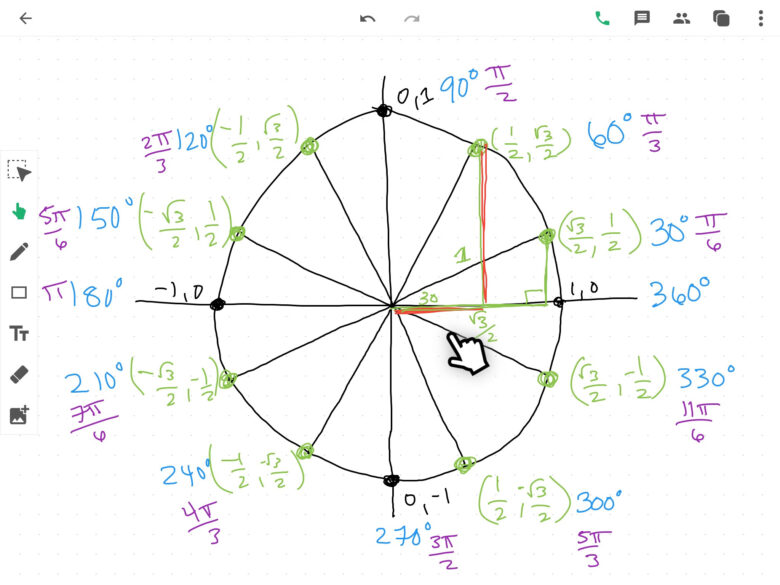Advice for Learning Remotely
I Was Homeschooled for Seven Years: Here’s My Advice for Learning Remotely
Wish granted. As a tutor over the past few years, I have had a number of students make comments to me about how they wished they could do homeschool. In their minds, homeschool meant independence and less homework: the definition of perfection for any student. Well now, thanks to the global crisis that needs no introduction, that wish has been granted. Moreover, it has been granted for millions of students who did not express such a desire for independent learning in the first place.
For many, this wish is turning into a bit of a monkey’s paw situation. Now that they have had their wish, that is, many are figuring out that homeschool was never the right option for them. Students have complained on a weekly basis about the lack of direction and structure. More than a few have noted that teachers haven’t been the clearest with instruction for new material. As a result, I’ve had a number of students get behind on assignments, go into assignments having no idea how to even start, and be unable to locate resources to clarify the content or expectations for their assigned tasks. On one hand this is to be expected: none of these teachers signed up originally to teach their classes remotely. They are doing their best to figure out how to do that now, making it up as they go. This is not the teachers’ fault, in other words; they are struggling as hard as the students are. This is just what homeschool is like, and my students are getting to experience that.
I was homeschooled from third through ninth grade, so I have a good idea of what my students are going through. For the first time in their educational career, they are structureless, often alone, and trying to figure out how to still learn and succeed in the new normal. And that’s where this blog post comes in. In the next four points, I am going to give my advice for how best to navigate learning remotely and how to make the most of the experience.
Starting with:
1. Create a structure for yourself
I’m going to start this point by referring to a news story out of Florida from earlier in April. A judge in Broward County – the area around Fort Lauderdale – sent out a letter to the Weston Bar Association reminding lawyers that working remotely did not mean that there were no rules for the courtroom. “It is remarkable how many ATTORNEYS [sic.] appear inappropriately on camera,” the letter states. “One male lawyer appeared shirtless and one female attorney appeared still in bed, still under the covers. And putting on a beach cover-up won’t cover up you’re poolside in a bathing suit.”
Aside from the humor of the story, why do I bring up this news article? Because if professionals in the most rule-centric and decorum-focused field in the world are struggling with maintaining their work ethic while working remotely, it reveals just how destabilizing this situation can be. In short, this time of working from home might end up being the least structured period of your entire life. When you not only don’t have to, but in most cases are not allowed to leave your home to work, the impulse for a lot of people is to put in the minimal effort of rolling out of bed and – maybe – taking a shower. It’s like living with legally-mandated depression (so much so that polls have found that up to 45% of people are experiencing depression and anxiety during quarantine).
So what does that mean for remote learning? I remember well the instinct to stay in bed late in the morning, the impulse to procrastinate on schoolwork, and the general ennui I felt when it came to learning in homeschool. There were days I wouldn’t touch schoolwork until after noon. I dragged my feet, because I was at home – the internet was right there, as was my GameCube – and I wanted to do literally anything else but school. And while I suspect most of my students could already relate to that feeling when it came to homework before the shelter in place order, now they have to work with that feeling for every part of their day. Where once class schedules and their physical presence at school could keep those procrastinating influences at bay, now they have far less structure.
The solution: Make your own structure. This is not new advice. As Dr. David Braucher writes in Psychology Today, part of the trauma of sheltering in place comes from “the loss of self-experience we suffer when we are unable to engage in our daily and weekly routines.” When we cannot live our normal life, we begin to lose our ability to function as we once did. Model students in the classroom might find themselves struggling to be productive at home, and students who already had trouble succeeding at school might find homeschool even harder. To combat this, you have to be structured. This begins with simple things like when you wake up and when you eat meals and extends to when you do your work and when you do physical exercise. If you are used to waking up early in the morning to go to school, working on a certain subject on certain days at certain times, with scheduled meal breaks and PE times mixed in, that should continue into your new life in this medically necessary homeschool life.
This means being intentional. Set a schedule for the days to create a routine and adhere to it. Create blocks of time to resemble class periods for working on each subject and only work on that subject during that time. This can include Zoom/Google Hangout meetings with teachers as they are scheduled but should not rely solely on those. Instead, this should be your routine, recreated as closely as possible within the confines of your home.
(On the topic of Zoom/Hangouts meetings: some of my students have noted that these meetings are often ‘optional.’ My advice for this homeschool life is to not skip any of these. Even if they are not required, the requirement to be in a specific place – albeit virtually – at a specific time helps create another layer of structure for the day. Beyond the structure, too, there is the added benefit of being able to ask questions and interact with teachers and peers. This sociality is vital in ways I will talk about more later on.)
Thinking more broadly to weekly and monthly routines, use calendar apps to mark and keep track of due dates and stick to them. Projects and future deadlines are part of learning andare very easy to lose track of when working alone. Being intentional about marking due dates on a calendar will help you keep track of those dates and will also assist you with prioritizing tasks when you sit down to work each day. Some days you will need to triage an assignment due the next day over one due in two weeks, and the only way you will know to do that is to keep track of when assignments are due.
Again, none of this should be completely new ideas for you. Many students already use some form of a planner for school. What is different is the level of self-direction and the requirement that you be proactive with structuring life for yourself. If you were already disciplined about planning and scheduling, now is not the time to slack off on that, and if you were never good at keeping track of tasks and deadlines before, now is the time to learn. In a way that you may never have experienced before, this task is on you now.
Which brings us to point two:
2. Be proactive in learning new material
I truly believe most of my students who wished to do homeschool failed to understand one key rule: working independently means you have to do most of the legwork. Good, bad, or somewhere in the middle, teachers do a lot to present information and provide context and explanations for that information. The worst teacher still puts in effort to make the material understandable to people who are new to the subject. So yes, homeschool means independence and less homework, but there’s a tradeoff. That tradeoff: you now have to do all the work your teachers once did to make the information you are learning understandable. My students often don’t have full class periods with lectures and notes anymore. If they do, those classes are far less frequent than they were when school was in session every day. What this means is that there are entire units worth of material being assigned, but not necessarily taught. This has left a lot of students confused about new concepts and feeling overwhelmed about their assignments.
I remember this feeling well. Learning algebra at home, my parent-teacher could not help me. She didn’t remember her algebra class and mostly talked about how hard it was for her when she was in school. I had assignments and things I was supposed to be learning, but I didn’t have direction, much less instruction in the material. So I had to take it upon myself to learn via the internet how to do the work. And that is my biggest advice for students doing remote learning now: don’t limit yourself to just what the teacher assigns over Zoom but take advantage of the resources online to make sure you understand what you’re being taught. Websites like Khan Academy provide instruction in just about every subject. There are years’ worth of class lectures posted to YouTube covering everything from elementary math to the philosophy of quantum physics. A quick Google search on just about any subject will give you the informational equivalent of the Library of Alexandria, all tailored to your inquiry. These should be regular – and by regular, I mean at least weekly – destinations to reinforce new material. You – the remote student – are your own teacher now.
Which brings me, of course, to the one resource I didn’t list and which should be your constant companion during this time: your textbook. Most of my students aren’t accustomed to reading the text in their textbook – therefore defeating half its purpose – because they are used to the teacher breaking down the material presented there. During normal school years, the words in the textbook are treated by many as if they were redundant. This is especially true in math, where the textbook is usually just where the homework problems live and not a resource of learning on its own. That mentality will not work for you anymore, though. The sheer number of times I have been stumped by a problem – both when I was in homeschool and (here’s the secret) while I’ve been a tutor – and found the solution by reading the textbook would astound you. The material is there, and if the homework is coming the textbook, then that material is also going to provide your answers.
The main takeaway here is that doing well in remote education is not impossible. You could end up learning more now than you would in a normal school year. However, doing so will take a lot of extra work on your part and all without the built-in support structure of a physical school location.
This is why point three is so important:
3. Work together with the people you live with
Let’s be real: this time is stressful for everyone. No one really knows what we’re doing or for how long we will have to do it. Money is tight, jobs are scarce, school is confusing. The old social support structures of school and work – where frustrations could be vented and work could be more immediately collaborative – are gone. The one social support structure that is left is the one that lives in the same place as you do. Family members, roommates, guardians, whathaveyou: these are your support structure now. And this goes for your remote education experience, too.
For parents, this means a new spectrum of responsibilities added on to the normal workload of raising a child. Parents – even the most overbearing of parents – aren’t all that used to having to manage their child’s schedule past getting them to and from school. For those hours at school, the parent is absent and not in charge. This hands-off approach doesn’t work in homeschool. In most cases, parents need to be involved. That doesn’t necessarily mean that parents need to be micromanaging their children in school; I would actually suggest against choosing this time to become a helicopter parent. What it does mean is that parents need to be more intentionally communicative with their kids about school right now. Parents should know where the teacher websites are, should know when Zoom meetings are (if only to make sure that there is a computer available for their child at the time), and should have an idea of how often their child is working on each subject. Parents are often going to be worried about their own work – having to parent and work from home is a whole new challenge the intricacies of which I won’t even pretend to understand. That said, parents are now honorary school administrators in their own homes. Being realistic with this fact will help everybody.
On the reverse side, students aren’t used to creating a schedule for themselves and sticking to it. Schools tend to create their own schedules and assign them to students; students just have to be where they are told to be at the right times. For many, this is the first time they have truly been in charge of their own schedule every day. A lot of them are handling the new challenge like champions. I’ve been endlessly impressed with a lot of my students’ abilities to cope and adapt. But all of them are still learning; they can use the assistance from people who have had years to learn time management skills. As we saw with our Floridian lawyers, some adults might be struggling with that subject right now too, but hopefully every adult has had more experience with creating their own schedule than a child still in school. Students should be sharing the schedules they make with adults in the house to help coordinate and get assistance sticking to each day’s list of tasks.
All of this is to say that learning is a communal activity, and should be treated as such, now more than ever. Even if the parent/guardian/roommate/sibling/etc. can’t help with the content of the schoolwork, they can help with the support and structure that are necessary for learning.
Which brings me to my last point:
4. Get help if you need it
This one might seem obvious, but it isn’t something everyone will have had to do before now. Reaching out for help in an intentional way isn’t something the school system often demands of most people. As we all have read in countless emails at this point, however, we are living in ‘unusual times’ (a phrase that should be stricken from the English language after this pandemic is over, by the way), and reaching out for help is one of the best things you can do right now. If you personally know someone with training in a subject, now is the time to talk to them. Mathematicians in the family, friends with science degrees, neighbors with a literary background, grandparents who were there for specific historical events – anyone you know who possesses more than lay knowledge about a subject is a potential resource right now. Plus, they all have spare time at the moment and could use some extra social interaction. This includes, but is not limited to, teachers. You should be in contact with teachers consistently now that you don’t see them every day, as they are the ones who – at the end of the day – are constructing the content you are learning. But the domain and range of your support structure should extend beyond that now. Asking for help isn’t an imposition and turning to non-faculty support isn’t a waste of time. It could mean the difference between a wasted semester and the most productive time of your academic career.
Beyond family and friends – if I may be allowed to insert a plug here – there are also professional services that can help students learning from home. Tutoring services like Sage provide a great extra resource to assist with structure and being proactive about learning. Tutors are hired, in other words, for their content knowledge in certain areas. Even tutors working outside of their field, moreover, will have studied up on the content their students are covering and will be able to assist in prioritizing, understanding, and completing the work they are assigned. This was our job before the pandemic, and we are more than prepared to handle learning from home now. And for many students, the extra support and accountability – not to mention set session times they have to be there for – will help them navigate this uncharted homeschooling terrain.
***
As I said earlier in this article, homeschooling doesn’t have to be a time of confusion where students feel like they aren’t learning all that they would in normal school environments. With intentionality, proactive work, and communal support, this time could be productive and positive for every student. If it’s handled correctly, this educational nightmare might turn out to be a student’s dream come true.







 The Thief Lord by Cornelia Funke – For people who like “Peter Pan,” but would rather be adults sooner instead of forever young.
The Thief Lord by Cornelia Funke – For people who like “Peter Pan,” but would rather be adults sooner instead of forever young. Gilda Joyce Series by Jennifer Allison – For plucky young detectives and fans of Nancy Drew.
Gilda Joyce Series by Jennifer Allison – For plucky young detectives and fans of Nancy Drew. Esperanza Rising by Pam Muñoz Ryan – A story of picking yourself up when you fall – inspirational and moving.
Esperanza Rising by Pam Muñoz Ryan – A story of picking yourself up when you fall – inspirational and moving. Good Girls Revolt by Lynn Povich – For future journalists.
Good Girls Revolt by Lynn Povich – For future journalists.




